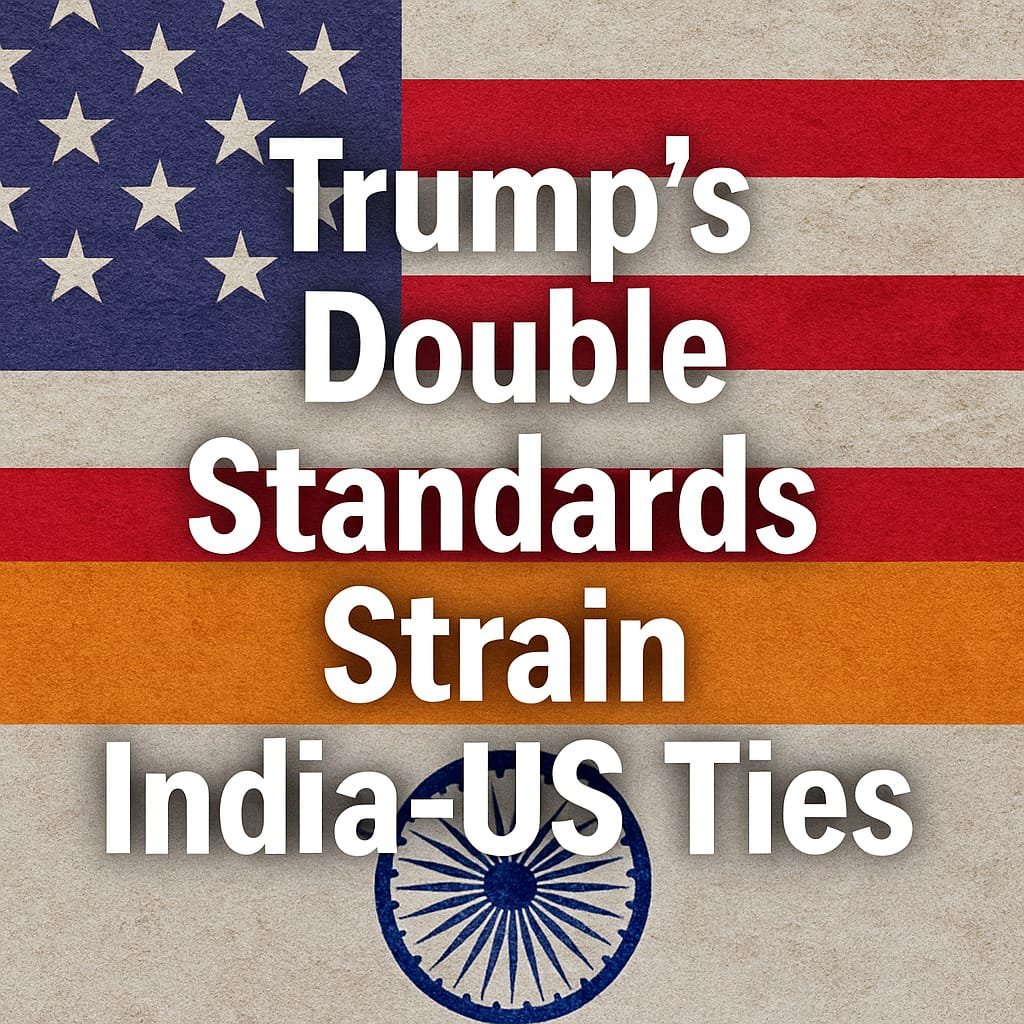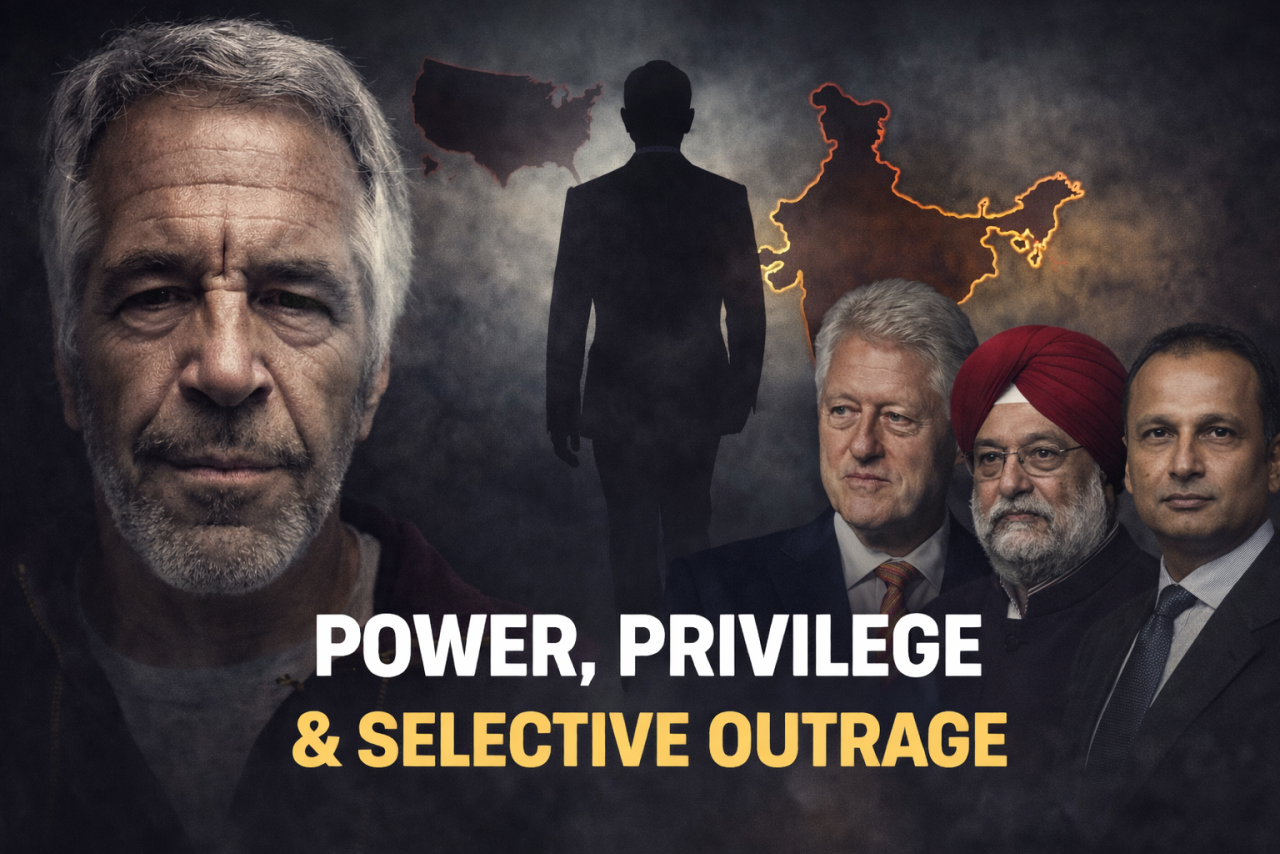
The Trump administration's foreign policy often functioned more like a deal-making reality show than strategic diplomacy. Nowhere was this more evident than in its contradictory stance toward India. President Donald Trump has criticized India's defense and energy ties with Russia, while his administration allowed European allies to continue similar partnerships. The result is a widening trust deficit between Washington and New Delhi.
India, the world’s largest democracy and a strategic partner of the United States, has found itself repeatedly targeted by Trump. His criticism centers on India’s decision to buy Russian oil and defense equipment, particularly the S-400 missile defense system. Trump threatened sanctions under the Countering America's Adversaries Through Sanctions Act (CAATSA). Yet his administration allowed countries like Turkey and Germany to continue business with Moscow without similar consequences.
According to the Stockholm International Peace Research Institute (SIPRI), Russia accounted for about 45% of India’s arms imports between 2018 and 2022. The S-400 deal alone was valued at $5.43 billion. At the same time, the US gave NATO member Turkey a relatively soft response for similar purchases. European nations continued to buy Russian gas through pipelines, with some depending on Russia for over 30 percent of their energy supply. These double standards make the US position difficult to justify.
India’s crude oil imports from Russia surged after the Ukraine war began in 2022. By 2024, Russia had become India’s top oil supplier, accounting for more than 30% of total crude imports, according to India’s Ministry of Commerce. Despite this, Trump has publicly criticized India while overlooking the continued Russian energy imports by many European nations.
Beyond trade and defense, the Trump administration’s silence on human rights violations among US allies adds to its diplomatic contradictions. Trump has remained largely quiet on the Saudi-led bombing of Yemen, which caused over 370,000 deaths since 2015 according to the United Nations. He has taken no strong stance on Israeli military actions in Gaza, despite repeated UN concerns over civilian casualties. Yet he raises alarms over India’s ties with Russia, citing the Ukraine war.
This selective morality damages the United States’ credibility as a defender of democratic values. Washington appears to use human rights as a bargaining chip rather than a universal principle. For India, it is a clear sign that its foreign policy needs to remain independent and guided by national interest.
India’s strategic autonomy has long been central to its foreign policy. External Affairs Minister S. Jaishankar has repeatedly stated that India will not be dictated to by external powers. In response to Western pressure, he said, "Europe buys oil from Russia and we are advised not to. If it is your energy security, it is ours too." This assertion struck a chord across the Global South and reinforced India’s sovereign right to navigate its own path.
Adding to the diplomatic strain was Trump’s engagement with Pakistan after the April 2025 Pahalgam terror attack in Jammu and Kashmir. The attack, believed to be backed by Pakistan-based militants, killed 26 civilians. In the weeks following, Trump resumed military engagement discussions with Pakistan. India saw this as a betrayal. At a moment of national mourning, India expected solidarity from a strategic partner.
The Ministry of External Affairs expressed concern, and strategic analysts in India called the move diplomatically tone-deaf. Former Indian diplomats said it sent the wrong message at a sensitive moment, undoing years of trust built since the post-Cold War era.
Historically, the US-India relationship evolved from mutual suspicion to cautious optimism. During the Cold War, India leaned toward Moscow while the US aligned with Islamabad. But after 9/11 and India’s economic liberalization, both sides found common ground in democracy, trade, and counter-terrorism. The civil nuclear deal, signed in 2008, symbolized a strategic shift.
Under Trump, that trajectory faces new risks. His obsession with trade imbalances led him to revoke India’s Generalized System of Preferences (GSP) in 2019, which affected over $5.6 billion in Indian exports. Trade between the two countries declined during that period. The tone shifted from partnership to transaction.
Trump’s actions have also stalled multilateral cooperation. Indo-Pacific dialogues and QUAD meetings have slowed. America’s exit from global agreements like the Paris Climate Accord and Trans-Pacific Partnership further distanced Washington from New Delhi’s worldview.
While Trump held photo-ops with Prime Minister Modi, the substance of the relationship weakened. His unpredictability and disregard for diplomatic nuance created confusion in foreign capitals. India, like many others, is recalibrating its expectations from Washington.
Trump’s foreign policy legacy leaves India with hard lessons. Chief among them is the importance of diversification. India has deepened defense ties with France and Israel. It continues to engage Russia, not just out of historical habit, but for practical reasons like cost-effectiveness, maintenance compatibility, and geopolitical leverage.
The Trump era also pushes India to build regional alliances beyond the US umbrella. It has increased its presence in BRICS, the Shanghai Cooperation Organization, and bilateral forums in Asia and Africa. India is also investing in domestic defense production and energy alternatives to reduce long-term dependency.
The US, on its part, faces global skepticism. From Canada to Germany to South Korea, long-standing allies have questioned America’s reliability. A Pew Research poll in 2020 showed favorable views of the US fell to historic lows across Western Europe during Trump’s presidency.
To rebuild trust, American diplomacy must shift back to consistency and respect. Future administrations need to treat allies as equals, not subordinates. Lecturing nations like India while indulging others undermines the values the US claims to uphold.
India is unlikely to forget the mixed signals it has received. As it rises in global influence, it will prioritize partnerships based on mutual respect, not pressure. The world is entering a multipolar phase where coercion has limited returns.
Trump’s presidency is a reminder that alliances can be fragile. Trust, once lost, takes years to rebuild. For India and the US, restoring that trust will require more than photo-ops and press statements. It will demand principled engagement, long-term vision, and an honest acknowledgment of past missteps.
The next chapter of US-India relations depends on whether Washington is willing to listen as much as it speaks. If it does, it may find in India not just a partner of convenience, but a partner of consequence.





















